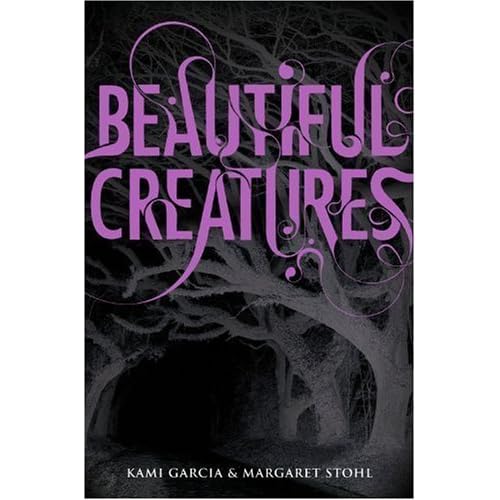Kami Garcia and Margaret Stohl went into writing Beautiful Creatures with a vision. A dare from teens they knew. The dare was this, write a book with the following things:
1. No vampires.
2. No whiny girl narrators.
3. Give the girl powers, not the guy.
4. Book must not be generic. (This should be a goal with every book, in my opinion!)
5. Specific setting, please.
(In other words, it sounded like the teens who dared them to write BC were sick of Twilight, lol. Anyway, the interview where I found the info on the dare can be found here.)
So, here's where I make a confession: I like paranormal romance, sometimes. Not Twilight crap. It has to, like the dare mentioned, not be generic. One of the reasons why I loved Timeless by Alexandra Monir was because it felt different from other books in the PR genre:
For one thing, the heroine, Michele doesn't just "curl up and die" (as the book puts it) when awful things happen. She does stuff. When her boy is in danger, she takes action. And did I mention that she can time-travel, not her boyfriend? Plus, the book has beautiful description. (Oh, and by the way, this is a book I feel like I can recommend on here! The close thing it has to swearing is stuff like taking God's name in vain, and if you're like me, you can just pretend they said "my gosh!" or something. I know we have a lot of conservative readers on here, so I try and be careful what I recommend. Other than that, no smut! :] Anyways...)
So yeah, I like the genre if the author can make the book feel unique. That's why, when planning my own paranormal romance, I went into it with my own goals:
- Must have a unique POV.
- Must have a specific setting, including mention of weather/decent description. (A challenge for me!)
- Must have a amazing storyline, not just be about the romance.
- Like my two favorite paranormal romances, the female MC must not be whiny and she should be more powerful than the male.
- Main characters who do stuff, stuff doesn't happen to them. (Or at least 80% of the time they do stuff, 20% of the time stuff happens to them.)
- The main couple can live without each other, but are better together.
- Must not be generic. (Note that a ton of stuff my on list springs from this rule.)


